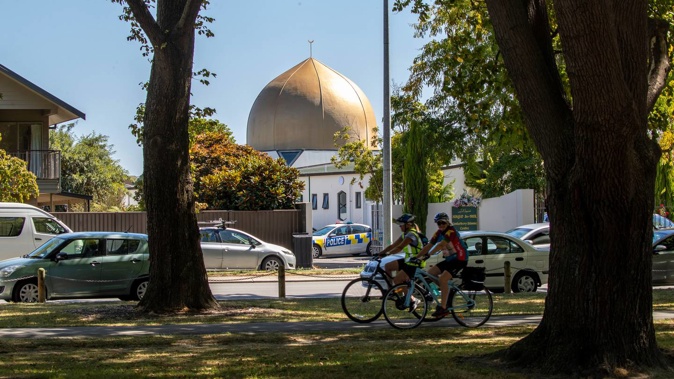
By Danielle Clent RNZ
An ambulance officer has broken down in tears describing trying to treat worshippers who needed surgeons, not paramedics, after being shot in the terror attack at Christchurch’s Al Noor Mosque.
Craig Stockdale was one of the first St John ambulance officers at the mosque after the mass shooting on March 15, 2019.
He became emotional answering questions about potentially life-saving treatments for injured people in the Deans Avenue mosque, saying they would not be carried out in a mass casualty situation because of the skill and time involved.
“In my heart, I knew, what these people needed was a surgeon, not a paramedic on the periphery trying to help them,” he said.
“They needed a hospital and we as a group, we knew that and that was our sole aim.”
/cloudfront-ap-southeast-2.images.arcpublishing.com/nzme/JBGB27YVOBDKTAHB3NBXUZ334I.jpg)
St John paramedic Craig Stockdale was one of the first paramedics to enter the Al Noor mosque. Photo / Chris Skelton
Stockdale said the mosque’s hallway was “littered” with bodies and paramedics had to step over people to help those who had survived.
The Coroners Court earlier heard a senior policeman watching a delayed feed of the terrorist’s livestream of the massacre relayed the information in error in a panicked transmission over police radio.
- AOS member tells of frustration in getting ambulances to Al Noor Mosque
- Revealed: Paramedics did not enter Christchurch mosque until 30 minutes after shooting
- Senior police communicator admits priority of 111 call should have been upgraded, terror attack inquest finds
- Dispatcher not aware of first 111 call about manifesto until days later, terror attack inquest finds
For a few minutes, police and paramedics at the scene thought the terrorist was returning to the mosque, but they soon realised it was a mistake.
It was one of the times where Stockdale felt the security situation at the scene changed.
Stockdale told the court police at the scene did not tell him the information was incorrect, which was “unsettling”.
There was no debrief about the situation and they all “just ploughed on”.
Just minutes later at 2.15pm, the first two St John paramedics entered the mosque with an armed police escort to assess the situation.
Soon after, injured survivors began being taken from the mosque, but Stockdale said he “absolutely” still believed the gunman might come back.
He said if he had been told it was a false alarm, it may have reduced his concern.
The inquest will examine the following 10 issues over six weeks:
- Events of March 15, 2019 from the commencement of the attack until the terrorist’s formal interview by police.
- Response times and entry processes of police and ambulance officers at each mosque.
- Triage and medical response at each mosque.
- The steps that were taken to apprehend the offender.
- The role of, and processes undertaken by, Christchurch Hospital in responding to the attack.
- Co-ordination between emergency services and first responders.
- Whether the terrorist had any direct assistance from any other person on March 15, 2019.
- If raised by immediate family, and to the extent it can be ascertained, the final movements and time of death for each of the deceased.
- The cause of death for each of the victims and whether any deaths could have been avoided.
- Whether Al Noor Mosque emergency exit door in the southeast corner of the main prayer room failed to function during the attack and, if so, why?
The inquest continues.
- RNZ
Take your Radio, Podcasts and Music with you









